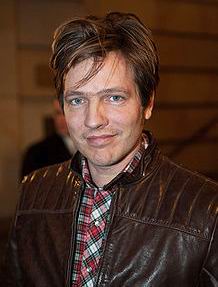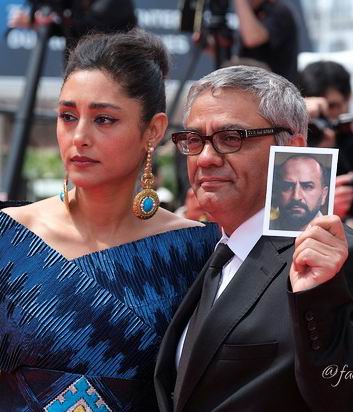|
|
| Welcome to Online Film Home! |
|---|
|
|
|

Vinterberg, Thomas |
Date of birth
19 maj 1969, Copenhagen, Denmark
Thomas Vinterberg (Maj 19, 1969, Copenhagen, Denmark)
In addition to rapidly establishing himself as a formidable cinematic talent, Danish filmmaker Thomas Vinterberg is notorious for celebrating the idea of utilizing more lightweight film production equipment and smaller budgets, as a stride away from big-studio gigantism.
His co-establishment (alongside Lars von Trier) of the Dogme 95 film movement exemplifies this idea.
Born on May 19, 1969, in Copenhagen, Vinterberg graduated from the National Film School of Denmark in 1993 with Last Round under his arm — a student short that garnered a formidable number of honors around the globe for a first-timer, including the Jury Award and the VFF Young Talent Award; it would ultimately receive a 1994 Oscar nomination for Best Live-Action Short Subject.
“The Dogma Manifesto was a wonderful opportunity to be a team, to unite the country’s filmmakers. But we’ve all sought out other paths, we distanced ourselves from a movement that was becoming a brand, and would have ended up limiting our creativity.”
He went on to helm the short-subject follow-up The Boy Who Walked Backwards (1993) — the sad tale of a Danish boy who internally chastises himself for the death of his brother in an automobile accident.
Like its predecessor, the film pulled in scores of awards for its sensitive and elegiac treatment of a difficult subject, from the Best Short Film and Audience Award at the Nordic Panorama 1994 to the Public Prize at Clermont-Ferrand in 1994 to Best Drama at the 1995 Toronto Short Film Festival.
1995 saw Vinterberg officially form Dogme 95 with Zentropa and Breaking the Waves helmer Lars von Trier.
Additional founders included The King Is Alive director Kristian Levring and The Boys from St. Petri auteur Søren Kragh-Jacobsen, all Danish natives.
The central idea behind Dogme involved initiating an entire aesthetic and stylistic movement within cinema that revolved around the simplification of production rules.
The men established several axioms that a film could not break if it were to be eligible for Dogme candidacy; these included an avoidance of genre films, a prohibition of artificial light and optical filters, on-location filming only, a restriction against non-location sound and added music, and no crediting of the director. (The men did not take the quality of individual films into consideration when judging their candidacy.)
Dogme made something of an impact on the international film scene — with over 100 films joining the “movement” to date (though, in time, von Trier and Vinterberg would abandon the project).
While Dogme 95 lasted, Vinterberg’s debut feature, Festen (or The Celebration), became the first “official” Dogme film.
Winner of the Jury Prize at the 1998 Cannes Film Festival, this comedy drama involves a Danish family that gathers to celebrate the 60th birthday of its patriarch, but becomes mired — over the course of an honorary dinner — in allegations of sexual abuse made by one of the children.
In the vein of Vinterberg’s earlier efforts, Festen sustained the director’s reputation as a master; it won the Cannes Jury Prize, the Independent Spirit Award for Best Foreign Film, the L.A.
Film Critics’ Association Award for Best Foreign Film, and the New York Film Critics Circle Award for Best Foreign Film in 1998, and earned dozens of additional nominations, too numerous to mention.
Vinterberg’s next major work, the 2002 feature It’s All About Love, not only broke free from Dogme but baffled everyone. Ostensibly a hybrid romance and sci-fi-adventure, the picture stars Claire Danes, Joaquin Phoenix, and Sean Penn.
It takes place in a future dystopia where snow falls during the summer, people are sucked through a hole in the Ugandan sky, and an inexplicable epidemic is wiping out thousands of children.
The central story involves a man (Phoenix) who discovers that his soon-to-be ex-wife (Danes), a famous ice skater, has been cloned.
The unholy crypticism of the film alienated viewers and critics; with the exception of Dennis Lim’s encouraging comments in The Village Voice, the few American reviewers who did approach the film universally panned it.
Vinterberg’s next feature, Dear Wendy, fared slightly better with the public and press (though not much).
Starring Bill Pullman (The End of Violence), with a script by Von Trier, the drama explores the American fascination with handguns and the emergence of gang violence in the United States.
Many attacked it as pretentious even as they applauded its naked ambition. —allmovie guide
Filmography
1990 Sneblind (short)
1993 Last Round | Sidste omgang (short)
1994 The Boy Who Walked Backwards | Drengen der gik baglæns (short)
1996 The Biggest Heroes | De største helte
1998 The Celebration | Festen
2000 The Third Lie
2003 It's All About Love
2005 "Dear Wendy"
2007 A Man Comes Home | En mand kommer hjem
2010 Submarino
2012 The Hunt
Selected filmography of
Vinterberg, Thomas
2020
Another Round | Druk (2020)
2018
The Command | Kursk (2018)
2016
The Commune | Kollektivet (2016)
2015
Far From The Madding Crowd (2015)
2012
The Hunt | Jagten (2012)
2010
Submarino (2010)
2005
Dear Wendy (2005)
2003
It's All About Love (2003)
1998
The Celebration | Festen (1998)
1998
The Celebration | Festen (1998)
|
|
|
|

Cannes 2024 |
Choose an item to go there!
|
| |
|
|

